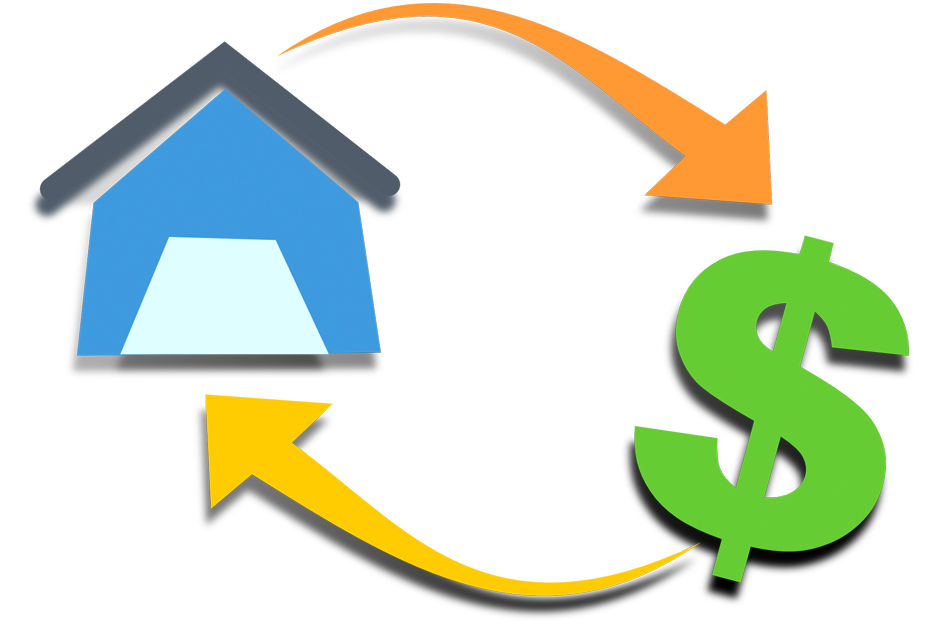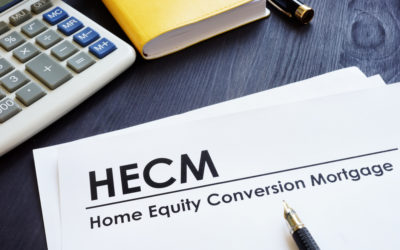Are you nearing retirement and curious about what a reverse mortgage is? Ready to tap into your home equity? A reverse mortgage could be a great way to do it!
This type of loan allows you to borrow against the value of your home, and there are a variety of ways to use the funds. Keep reading for all the details on how to get a reverse mortgage, including eligibility requirements and the application process. You could be enjoying the benefits in no time.
What Is a Reverse Mortgage?
A reverse mortgage is a loan in which homeowners can access cash that is tied up in their home equity. Unlike a traditional mortgage, a reverse mortgage does not require monthly mortgage payments. (The borrower is responsible for keeping up with property taxes, maintenance, and homeowners insurance.) The repayment for this loan is not due until the borrower moves out, sells the property, or passes away.
Discuss how proceeds are tax free and can be used for any purpose.
This makes reverse mortgages an attractive option for seniors who want to tap into their home equity without the pressure to make monthly mortgage payments.
How Does It Work?
Reverse mortgages can be a helpful way for seniors to supplement their retirement income, but they are not right for everyone. Before taking out a reverse mortgage, it is important to understand how they work and what the pros and cons are.
You must be at least 62 years of age to qualify for a reverse mortgage. Additional qualifications include: the borrower must have a significant amount of equity accumulated in the property—typically, at least 50% or more, the home must be their primary residence and the home must be considered structurally sound.
The amount of money you can borrow depends on the borrower’s age, the value of their home, and the current interest rate. When the loan is due, there are a few options available to pay back the reverse mortgage. The owner can sell the home and have proceeds go to the lender first with remaining left for the borrower or the borrower can refinance the mortgage or take out a new mortgage.
Reverse mortgages are considered non-recourse loans. That feature means that borrowers will never owe more than the value of the home. For example, If the sale of the house does not cover the full amount of the loan, borrowers or their heirs are not responsible for paying any additional money.
Types of Reverse Mortgages
There are three different types of reverse mortgages. Here’s a breakdown of each.
Single-Purpose
Some local and state governments, as well as some non-profit organizations, offer single-purpose reverse mortgages. As the name implies, these mortgages serve a specific purpose such as repairing your home or paying property taxes.
Single-purpose mortgages are the least expensive option, but they are only available to a limited number of people. This is because they are offered by a small number of lenders. In fact, it’s only offered in some states and by some government agencies and nonprofits which is why many people don’t even know it exists, let alone what it is and how to use it
Federally-Insured
The Federal Housing Administration (FHA) offers two types of reverse mortgages: the Home Equity Conversion Mortgage (HECM) and the HECM for Purchase. The HECM is the most common type of reverse mortgage.With this type of mortgage, you can borrow up to 65% of the value of your home.
The HECM for Purchase allows seniors, 62 and older, the convenience and flexibility to purchase a new home using the proceeds from a reverse mortgage. With this type of mortgage, you can borrow up to 50% of the value of the new home.
A HECM for Purchase loan combines a reverse mortgage with the equity from the sale of your previous home to buy your next primary home in a single transaction. This is perfect for seniors who want to increase their purchasing power. And it comes with the added advantage that only a reverse mortgage can provide: no monthly mortgage payments.
Proprietary
A proprietary reverse mortgage (often referred to as a Jumbo) is a loan that is not insured by the federal government. Additionally, these loans offer more than a traditional HECM – up to $4,000,000 depending on your home’s value. They also have attractive low rate options, no Mortgage Insurance Premium (MIP) for lower upfront costs and can be offered to borrowers under the age of 62 in certain cases. In short, these mortgages provide more cash with greater flexibility and fewer restrictions.
Jumbo loans aren’t for everyone but they do come with their own set of benefits for those who qualify. They offer greater flexibility and fewer restrictions which allows lenders to provide attractive low-rate options and more cash for the homeowner.
Benefits of a Reverse Mortgage
There are a number of benefits to getting a reverse mortgage. For one, you can stay in your home as you age. As long as you continue to live in your home, you don’t have to make any monthly mortgage payments.
With a reverse mortgage, you can get tax-free cash. The money you receive from a reverse mortgage is not considered income and will not affect your Social Security or Medicare benefits. However, loan proceeds could impact eligibility for needs-based programs such as Medicaid or Supplemental Security Income by counting toward qualifying income and asset limits.
Reverse mortgages can give you more financial security in retirement. With a reverse mortgage, you can access the equity in your home without having to sell your home. This can give you a financial cushion to cover unexpected expenses in retirement.
Reverse mortgages can also help you pay for home repairs or modifications. This can make it easier for you to stay in your home as you age.
Reverse Mortgage Rules
A reverse mortgage lets homeowners age 62+ convert their home equity into cash. They don’t have to make monthly mortgage payments for as long as they live in the home. There are no rules about how you spend the money from a reverse mortgage.
For married couples, both spouses must be at least 62 years old to qualify**. If only one spouse meets this requirement, then the younger spouse is considered a non-borrowing spouse. The non-borrowing younger spouse can continue to live in the home as long as the older spouse lives there too. there
All homeowners must pay their property taxes and insurance. If these payments are not kept up, the reverse mortgage could become due and payable.
To help ensure that borrowers understand all the terms of a reverse mortgage, lenders need to do a financial assessment of each borrower’s ability to pay ongoing property charges like taxes and insurance.
LESA
In some cases, borrowers are required to include a Life expectancy set-aside (LESA) with their loan. A LESA is an amount of money that may need to be held back from the proceeds of the loan to pay for property taxes and insurance.LESA funds are put in escrow by the lender and paid as these expenses come due. The amount that is set aside can increase over time to ensure that the borrower has enough money to cover necessary expenses. The unused part of a LESA may be borrowed later if needed.
As part of the borrowing process, you will be required to meet with an independent reverse mortgage counselor. These counselors must be approved by the US Department of Housing and Urban Development. They will go over the details and help you determine whether a reverse mortgage is right for you.
Things to Consider Before Applying
Applying for a reverse mortgage is a big decision. Here are some things to think about before you apply:
Fees and Other Costs
Reverse mortgages come with a lot of fees and other costs. These include origination fees, closing costs, and servicing fees. All these fees can add up, so it is important to compare the costs of different reverse mortgages before you decide which one is right for you.
Taxes and Homeowners Insurance
Just because you have a reverse mortgage does not mean you are no longer responsible for paying your property taxes and homeowners insurance. If you default on these payments, the lender can foreclose on your home.
Mortgage Insurance
If you do not have enough equity in your home, you may need to take out mortgage insurance. Mortgage insurance protects the lender in case you default on your loan. This insurance can add to the cost of your loan, so be sure to factor it into your budget when you are considering a reverse mortgage.
Maintenance
With a reverse mortgage, you must continue to maintain your home. You will need to keep up with repairs and make sure your home is in good condition. This can be a problem if you deplete the loan proceeds and cannot afford to make repairs.
Non Recourse Clause
Most reverse mortgages come with a non-recourse clause. What this means for you is that you will never owe more than what your home is worth, regardless of how much interest accumulates on the loan.
This is an important protection for borrowers, but it is important to remember that it only applies to the principal balance of the loan. It does not apply to any fees or other costs you may owe.
How to Get a Reverse Mortgage
In order to qualify for a reverse mortgage, you must be at least 62 years old, own a considerable amount of home equity (typically, at least 50%), and occupy the property as your primary residence. The property must be eligible for financing through the FHA, and you must have acceptable credit with proof that your income and/or assets are sufficient to cover expenses such as property taxes and mortgage insurance.
We understand you may want to shop around for a reverse mortgage just like you would for any other type of loan. Be sure to compare the costs, fees, and terms of each loan. Check Trustpilot and the Better Business Bureau to see what others have to say. And be sure to ask the following questions:
- Are they an FHA approved lender?
- Will the lender provide me top notch service?
- Does the lender have the necessary expertise?
- Is the lender’s rate and fee structure competitive?
Get Counseling
Before you apply for a reverse mortgage, you must receive counseling from a HUD-approved housing counselor. A housing counselor can help you understand the terms of the loan and make sure that you are able to afford the loan. You can find a list of HUD-approved housing counselors on the HUD website.
Apply For The Loan
Once you have found a lender and gone through counseling, you can apply for the loan. Be sure to have all your documents in order before you apply, such as:
- Your social security number
- Proof of income
- Proof of assets
- A list of your debts
- Two years of tax returns
A lender will also need to appraise your home to determine its value.
Safeguards for Borrowers
To protect your safety and better meet the needs of borrowers, the U.S. government regulates reverse mortgages with certain provisions that may impact eligibility:
Counseling Sessions
HUD requires all prospective borrowers to attend an approved, third-party counseling session in person or by phone. It’s designed to help you determine whether a reverse mortgage could be a viable solution for your goals in retirement.
Financial Assessment
At the time of application, your reverse mortgage lender will conduct a credit and financial assessment to compare your debts against your income and assets. The goal is to ensure borrowers will be able to keep up with their responsibilities such as property taxes, mortgage insurance, Homeowner’s Association (HOA) fees, and any other obligation that could result in a lien on the property.
Property Appraisal
The FHA insures all HECM loans, which provides borrowers with non-recourse protection. This means you will never owe more than the outstanding loan balance or 95% of the home’s appraised market value—whichever is less. It’s therefore important to conduct an evaluation from an FHA-approved appraiser at the time of application to determine the property’s estimated market value.
However, they do have some drawbacks. They can be relatively expensive, with fees and mortgage insurance that can add up to thousands of dollars over the life of the loan. And, while providing supplemental cash for immediate needs, reverse mortgages can reduce the inheritance that heirs receive from the estate.
Before taking out a reverse mortgage, it is important to understand how they work and what all your options are.
Is A Reverse Mortgage Right For You?
We understand you may have doubts about undertaking debt at this age. But a reverse mortgage can be a wonderful tool to increase the quality of your lifestyle. A reverse mortgage can be a great way to access some of the equity you have built up in your home, without having to sell it. And now that you know how to get a reverse mortgage, you can start shopping around for the best loan for your needs. Be sure to compare interest rates, fees, and terms before you choose a lender.
A reverse mortgage calculator allows you to compare reverse mortgage offers before you apply for a loan. Access our calculator to begin your journey to financial freedom.
** Different qualifications may apply to jumbo reverse mortgages. Please contact Good Life Home Loans for more information and to see if you qualify.

 1-866-840-0279
1-866-840-0279


